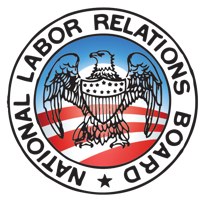 Though some have started to issue their year-end and presidential-term-end reviews of federal labor law, some recent decisions turn the year on its head—not to mention at least one major chapter yet to be written.
Though some have started to issue their year-end and presidential-term-end reviews of federal labor law, some recent decisions turn the year on its head—not to mention at least one major chapter yet to be written.
Just last week the National Labor Relations Board (NLRB), ruling on Kent Hospital, decided that lobbying expenses could be considered chargeable expenses if they are “germane to collective bargaining, contract administration, or grievance adjustment.” This means that even if a union member opts out of permitting his or her dues to be used for politics (thanks to the Beck decision) certain lobbying would be still be funded. The problem is that the definition is so broad that a labor union could decide that almost all of its lobbying is germane for these purposes. The NLRB also ruled that Beck objectors are no longer entitled to a detailed audit showing that their dues were not spent on politics.
The Board also went back on half-a-century of labor law in reversing the Bethlehem Steel decision. The NLRB determined that even when a union is on strike or its contract with an employer has expired, the employer must continue to deduct dues and pay them to the union.
The Roundy’s case may be the most significant one that comes before the NLRB this year. And now the NLRB, free of any dissenting voices, can inflict more damage on labor relations than ever before.
The Roundy’s dispute is over access to an employer’s property by unions when that employer allows access for other groups, such as the Girl Scouts. The union wanted to hand out pamphlets encouraging a boycott of the grocer because Roundy’s was not a union store.
But there is a lot more to the case. The implications will likely extend to other forms of property–notably e-mail systems, and may overturn the Bush-era decision of Register-Guard, which stated that “equal” groups were cause-specific. For example, there could not be discrimination of one union over another, or union group versus an anti-union group, but the Girl Scouts and Red Cross could be permitted to operate there because they are groups not related to unions.
What’s at risk here is that the NLRB may use this opportunity to invoke Section 7 and determine that blanket rules banning work e-mail for personal use are not permitted, because e-mail is effective in communicating about organizing or other concerted activity.
In addition to this decision turning labor law on its head, there are serious constitutional concerns for employers. First, employers may be asked to severely compromise their physical property rights by being forced to allow unwanted persons to enter. In turn, depending on state law, there will need to be legal determinations of the status of that person—as in, is that person an invitee or a licensee—a distinction that often matters for purposes of tort law liability.
There are also First Amendment implications of forcing employers to open up their e-mail systems to facilitate speech. The next question would be, of course, to ask how far this must extend to be compliant. If company e-mail becomes a free-for-all, some companies may act to limit e-mail usage altogether. This will in turn hurt productivity.
This NLRB has made it a goal to push the envelope and give a distinct advantage to labor in all disputes. But a decision against Roundy’s in this case might be the most blatant unbalancing of the scales that we’ve seen. A line is crossed when a union is not only given equal standing with an employer, but a clear advantage.
Meanwhile, labor is gearing up for even more organizing in 2013. Truth-Out has given five reasons why it thinks labor will regain some power—all of which add up to more union insolence in the face of common sense and reality. It appears that the author missed the memo: actually making an argument and pounding the pavement to unionize employees is passé. If anything, more strikes and walkouts, for example, will only cause more people to turn their backs on unions.
Once, labor was concerned with preaching to the workers—changing hearts and minds, hoping to rally support among employees to stand up for their rights and effectively make gains collectively. Now, that model has failed, as unions have failed to help their members. Instead, unions will spend member money on politics to make sure that when a labor dispute arises, they only need to preach to the converted.



